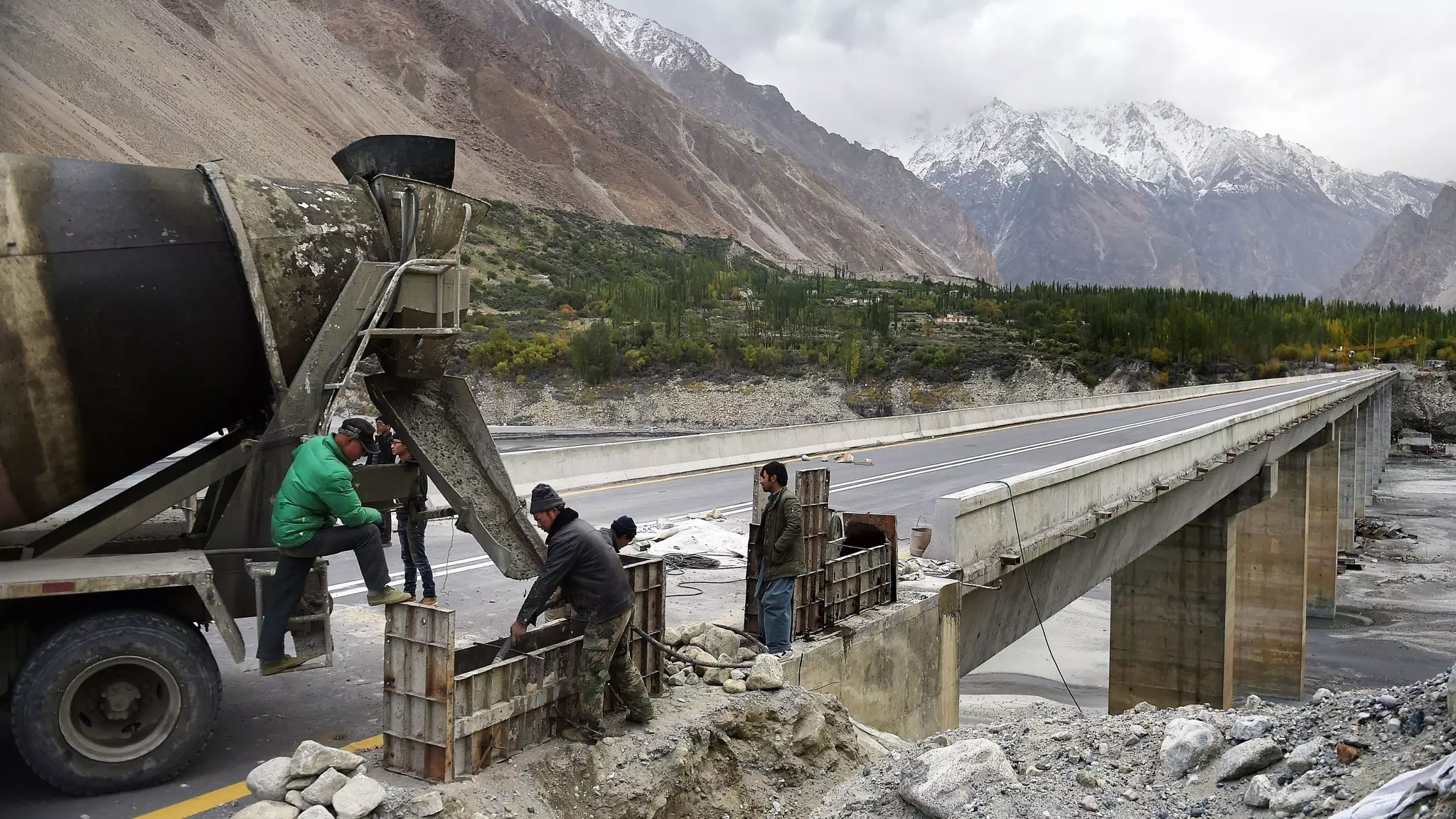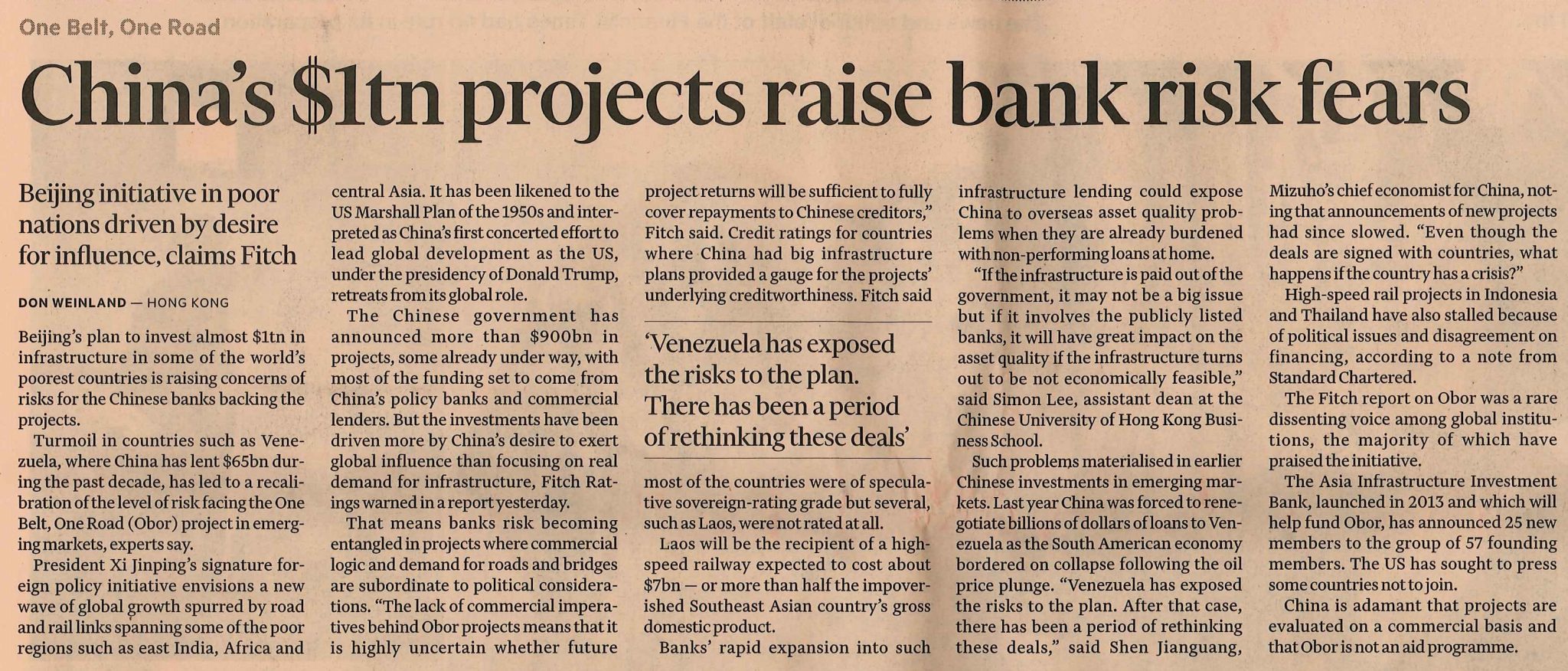China Warned of Risk to Banks from One Belt, One Road Initiative

Fitch Ratings’ recent report warned that Chinese banks’ rapid expansion of infrastructure lending in emerging markets could expose China to overseas asset quality problems. Simon Lee shared his viewpoints with Financial Times.
Beijing’s plan to invest almost $1tn in infrastructure in some of the world’s poorest countries is raising concerns of risks for the Chinese banks backing the projects.
President Xi Jinping’s signature foreign policy initiative, the One Belt, One Road (OBOR) project, envisions a new wave of global growth spurred by roads and rail links spanning some of the poor regions such as east India, Africa and Central Asia.
The Chinese government has announced more than US$900bn in projects, some already under way, with most of the funding set to come from China’s policy banks and commercial lenders.
But the investments have been driven more by China’s desire to exert global influence than focusing on real demand for infrastructure, Fitch Ratings warned in a report on 26 January 2017. The Fitch report on OBOR was a rare dissenting voice among global institutions, the majority of which have praised the initiative.
That means banks risk becoming entangled in projects where commercial logic and demand for roads and bridges are subordinate to political considerations.
“The lack of commercial imperatives behind OBOR projects means that it is highly uncertain whether future project returns will be sufficient to fully cover repayments to Chinese creditors,” Fitch said.
Credit ratings for countries where China has big infrastructure plans provide a gauge for the projects’ underlying creditworthiness, Fitch said. Most of the countries are of speculative sovereign-rating grade but several, such as Laos, are not rated at all.
Banks’ rapid expansion into such infrastructure lending could expose China to overseas asset quality problems at a time when they are already burdened with non-performing loans at home.
Simon Lee, Assistant Dean (Undergraduate Studies) and Senior Lecturer of School of Accountancy at The Chinese University of Hong Kong Business School said in an interview with Financial Times, “if the infrastructure is paid out of the government, it may not be a big issue but if it involves the publicly listed banks, it will have great impact on the asset quality if the infrastructure turns out to be not economically feasible.”
Such problems materialized in earlier Chinese investments in emerging markets. Last year China was forced to renegotiate billions of dollars of loans to Venezuela as the South American economy bordered on collapse following the oil price plunge… Read More (PDF)
The story was also reprinted in Financial Times‘ print edition on 27 January 2017. Please click the image below for further reading.
Source: Financial Times
Date published: 26 January, 2017
Photo: AFP


